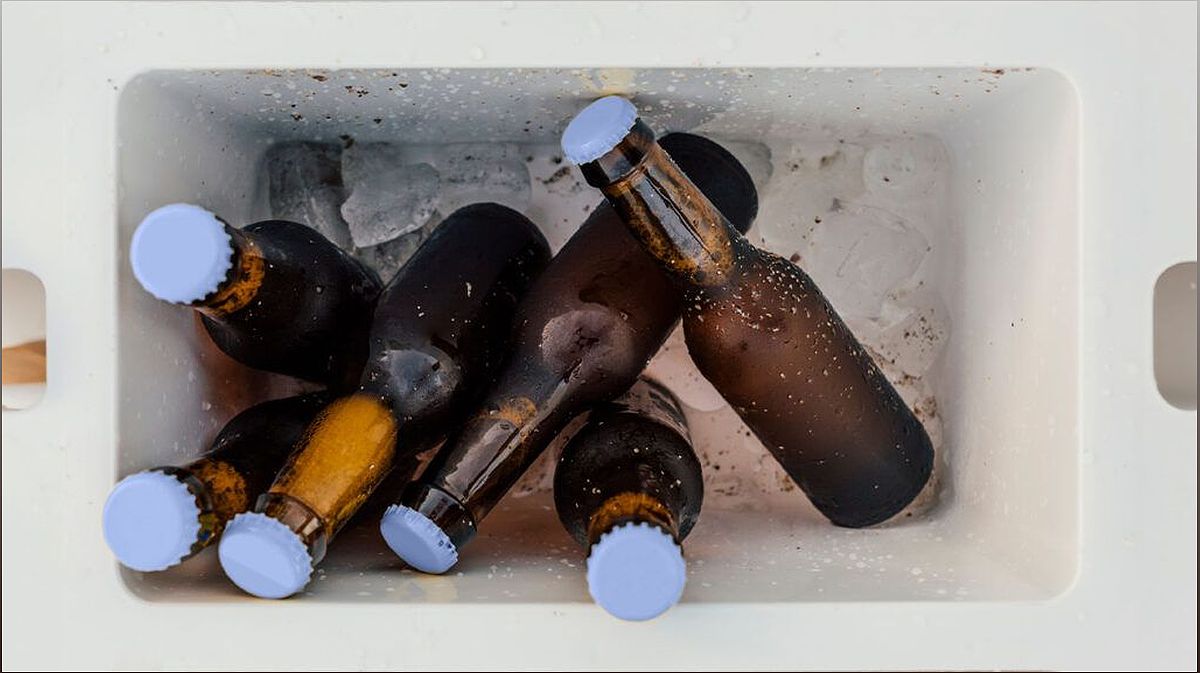Are you aware of the potential harm that binge-drinking can cause to your liver? A recent study conducted by the University College London has revealed some eye-opening insights. Contrary to popular belief, it’s not just the quantity of alcohol consumed that poses a risk, but also the pattern of drinking. This article explores the findings of the study, highlighting the increased likelihood of developing alcohol-related cirrhosis (ARC) after a single night of heavy binge-drinking. We delve into the impact of genetic predisposition and type-2 diabetes, shedding light on the significant risks they pose. Join us as we explore the importance of responsible alcohol consumption and the potential consequences for liver health.
The Link Between Binge-Drinking and Liver Disease
Alcohol consumption has long been associated with liver disease, but this study reveals that it’s not just the quantity of alcohol that matters. The pattern of drinking plays a significant role in determining the risk of developing alcohol-related cirrhosis (ARC). Researchers at the University College London found that a single night of heavy binge-drinking can have a more detrimental impact on the liver compared to moderate drinking spread across the week.

By analyzing data from over 300,000 active alcoholic drinkers in the United Kingdom, the study highlighted the increased likelihood of developing ARC after engaging in heavy binge-drinking. This finding challenges the common belief that occasional heavy drinking is less harmful than regular moderate drinking.
So, what does this mean for your liver health? Let’s dive deeper into the study’s findings and explore the implications of binge-drinking on liver disease.
The Role of Genetic Predisposition
While the pattern of drinking is important, genetic predisposition also plays a significant role in determining the risk of developing alcohol-related cirrhosis. The study found that individuals with a high genetic predisposition were four times more likely to develop ARC compared to those without such predisposition.

This highlights the importance of understanding your genetic background and its potential impact on your liver health. If you have a family history of liver disease or alcohol-related issues, it’s crucial to be mindful of your alcohol consumption and take proactive steps to protect your liver.
By recognizing the role of genetic factors, we can better understand the individual differences in liver disease risk and tailor preventive measures accordingly.
The Impact of Type-2 Diabetes
Type-2 diabetes is a common metabolic disorder that affects millions of people worldwide. This study revealed that individuals with type-2 diabetes have a twofold increased risk of developing alcohol-related cirrhosis compared to those without diabetes.

These findings emphasize the importance of managing diabetes effectively and considering the potential consequences of alcohol consumption. Individuals with diabetes should be cautious about their alcohol intake and consult with healthcare professionals to ensure their liver health is protected.
By addressing both diabetes management and alcohol consumption, we can reduce the risk of liver disease and promote overall well-being.
The Combined Impact of Binge-Drinking and Genetic Predisposition
The study’s most striking finding was the significant increase in the risk of developing alcohol-related cirrhosis when heavy binge-drinking and genetic predisposition coincide. Individuals who engaged in binge-drinking while also having a high genetic predisposition were six times more likely to develop ARC.

This highlights the importance of considering both the pattern of drinking and genetic factors when assessing the risk of liver disease. Understanding your individual risk factors can empower you to make informed decisions about alcohol consumption and take steps to protect your liver health.
So, whether you have a genetic predisposition or not, it’s crucial to be mindful of your alcohol intake and adopt responsible drinking habits to safeguard your liver.
Conclusion: The Importance of Responsible Alcohol Consumption
This study serves as a wake-up call, emphasizing that the way we drink alcohol matters for our liver health. Binge-drinking, even on a single occasion, can have serious consequences for our liver, especially when combined with genetic predisposition or underlying health conditions like type-2 diabetes.
It’s essential to prioritize responsible alcohol consumption and be aware of the potential risks involved. By spreading out our alcohol intake across the week and staying within recommended limits, we can minimize the harm to our liver and maintain our overall well-being.
Remember, your liver plays a vital role in keeping your body healthy, so let’s take care of it by making informed choices about alcohol consumption and prioritizing liver health.